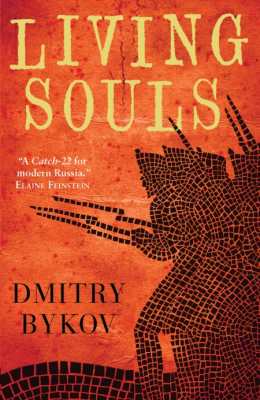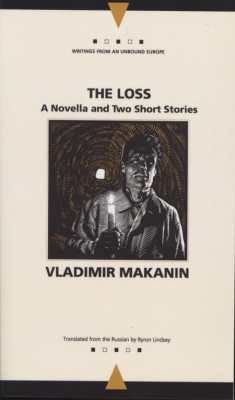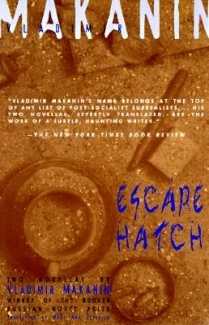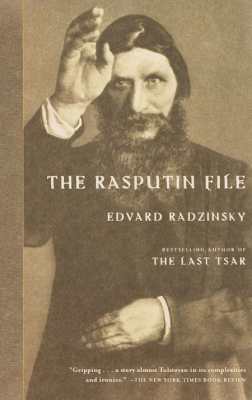From Russia with Love
The Country's Contemporary Writing Scene Thrives
When pondering the tremendously difficult questions about how great novels are created, it is instructive to remember that writers generally fall into two camps: writers who have something compelling to say, and others with the skill set to use words artistically. Only rarely do both qualities inhabit the same individual, and yet that particular hybrid of writer has been especially abundant in Russia’s vast reaches of steppes, tundra, and urban milieu over the past two hundred years or so.
Indeed, Tolstoy, Pushkin, Chekhov, Gogol, Pasternak, Dostoevsky, Bulgakov, Solzhenitsyn, Nabokov, and numerous others rank among history’s finest literary figures—disproportionately so. Can we attribute war, political oppression, maniacal rulers, isolation, competition, or some other uniquely Russian factor for their talent? Is it the water? Osip Mandelstam’s elucidating quip, “Russia is the place where poetry really matters—here they shoot you for it,” is telling, to be sure, as it calls to mind the realization that having a rifle pointed at your head would surely serve to focus the mind.
With the success of War and Peace, Anna Karenina, Doctor Zhivago, etc., it’s a tragic fact that no more than a few hundred books from Russian authors are translated into English and distributed in these United (and insulated) States of America every year. While certainly the US retains some lingering jingoistic Cold-War-based aloofness towards all things Russian, there is currently a remarkable literary scene in Russia, myriads of talented writers pushing boundaries in sci-fi, fantasy, horror, and dystopia, as well as in literary fiction and political satire in reaction to its maddening government.
That same government, perhaps surprisingly, through its Federal Agency for Press and Mass Communications’ Read Russia program and other campaigns, is spending many millions of rubles promoting Russian literature internationally and strengthening relationships between Russian and international publishers. Read Russia is also launching a new Institute of Translation, which is releasing a hundred-volume “library” of Russian classics in English. Under bright lights and much fanfare, the Agency ponied up the currency for the Country of Honor slot at this year’s Book Expo America and sent a team of twenty-five or so Russian writers to participate in readings, workshops, and other events.
As it relates to economic, political, and cultural heft, let’s also acknowledge some other Russian strengths that bear fruitfully on its literary position: Russia has the world’s seventh largest economy ($16,700 per capita GDP), boasts the largest number of Internet users in Europe, and will soon gain World Trade Organization membership. Of the emerging BRIC countries, Russia’s geographical position, literacy rates, and infrastructure all provide an important leg up. The US Department of Commerce reports that Russia recently moved into the world’s #3 position in terms of book production (behind the US and China), and online sales represent 8 percent of its $2.1 billion book market.
So Russian authors are poised to establish a huge presence in the English-speaking world and the Read Russia program is exactly the sort of cultural/social economic assistance to the arts that goes underfunded in familiar Western democracies. (Incidentally, China’s “reaching out” cultural initiative is much larger than that of the Read Russia.)
A number of the authors who visited New York representing the Read Russia program are counted among the most acclaimed, award-winning writers in the country. They seem capable even of filling the shoes of their legendary predecessors. Here’s a sampling of newly released works currently available in English translations.
Dmitry Bykov is the author of a Boris Pasternak biography and the winner of the National Bestseller and Big Book awards for his novel Ostromov, about freemasons in Leningrad in the 1920s. His novel Living Souls (Alma Books, 978-1-84688-126-8) was translated into English by Cathy Porter in 2011.



As celebrated as they come in Russia, Vladimir Makanin has written several novels, some futuristic and others bearing mystical traces. The following three Makanin books are all available in English: The Loss: A Novella and Two Short Stories (translation by Byron Lindsey, Northwestern University Press, 978-0-8101-1640-5); Escape Hatch and The Long Road Ahead (collection of two novellas, translation by Mary Ann Szporluk, The Overlook Press, 978-0-375-70108-5); Baize-Covered Table with Decanter (translation by Arch Tait, Readers International, 978-0-930523-66-4).
A National Bolshevik Party member and writer for an opposition newspaper, Zakhar Prilepin’s novel Sin won many national awards in 2008. Sin (Glagoslav Publications, 978-90-818239-4-4) was recently translated by Simon Patterson and Nina Chordas.



Edvard Radzinsky has written dozens of books on Russian history including acclaimed biographies on Stalin, Nicholas II, Rasputin, and Alexander II, all of which have been translated into English. Stalin: The First In-depth Biography Based on Explosive New Documents (translation by H. T. Willetts, Anchor Books, 978-0-385-47954-7); The Last Tsar: The Life and Death of Nicholas II (translation by Marian Schwartz, Anchor Books, 978-0-385-46962-3); The Rasputin File (translation by Judson Rosengrant, Anchor Books, 978-0-385-48910-2); Alexander II: The Last Great Tsar (translation by Antonina W. Bouis, Free Press, 978-0-7432-8426-4).



According to Read Russia, Olga Slavnikova’s “fiction braids together complex strands of metaphor and fantasy: Slavnikova considers fantasy a necessary tool for conveying the truths and undercurrents of contemporary Russian reality.” The Overlook Press recently released English translations of her thriller, 2017: A Novel (translation by Marian Schwartz, 978-1-59020-309-5), with A Light Head (translation by Andrew Bromfield) scheduled to be released soon.
One of the young set of Russian writers who doesn’t feel the need to “reinterpret or reprocess the Russian past,” Ann Starobinets’s An Awkward Age (translation by Hugh Aplin, Hesperus Press, 978-1-84391-714-4) was released in English early in 2011, and The Living (translation by James Rann, Hesperus Press, 978-1-84391-377-1) will be released in the US in October of this year.
The ringleaders of the grand Communist experiment launched during the Revolution of 1917 did not wait more than a few years before they insisted that the arts obediently serve the aims of socialism. That this seventy-year-long nightmare of oppression is scarcely twenty years removed and still weighs heavily on the collective psyche of Russia’s writers is certainly true. The question for scholars is whether these scars act as a catharsis. Are Russian writers more grounded, real, and qualified to write the stories of our age? You be the judge.
Matt Sutherland
